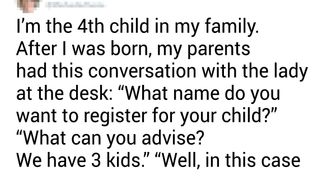18 Celebrities Who Shocked the World With Their Transformation

Parenting is a journey filled with various experiences, particularly for first-time parents. The way kids first learn about the world is through their parents. To raise an independent child, it’s essential to avoid societal pressures seen as parenting rules and to offer the right guidance. It’s crucial to be mindful of our actions and words, as they can have consequences when our kids become adults.
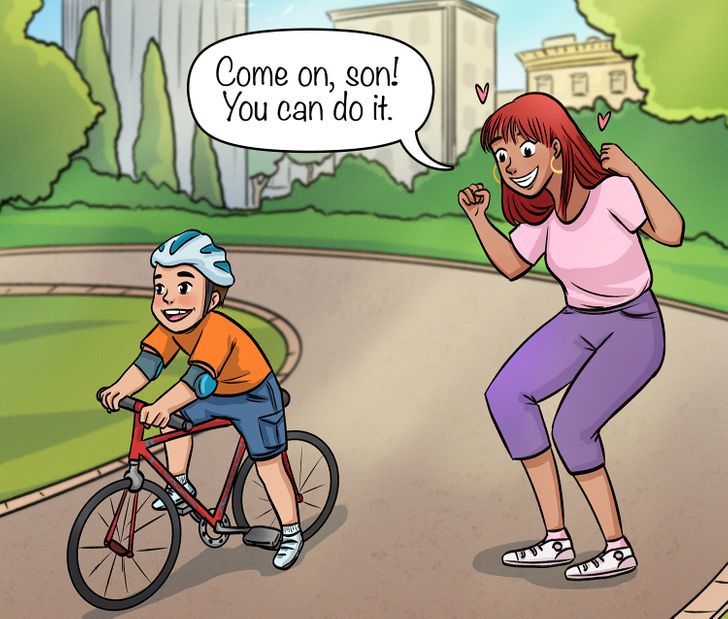
To boost your little ones’ confidence, simply believe in their abilities. While we’re used to guiding and teaching them, it’s equally important for us to trust in their strengths and desires. Transmitting our faith in their capabilities is the best way to nurture confident individuals with strong self-esteem.
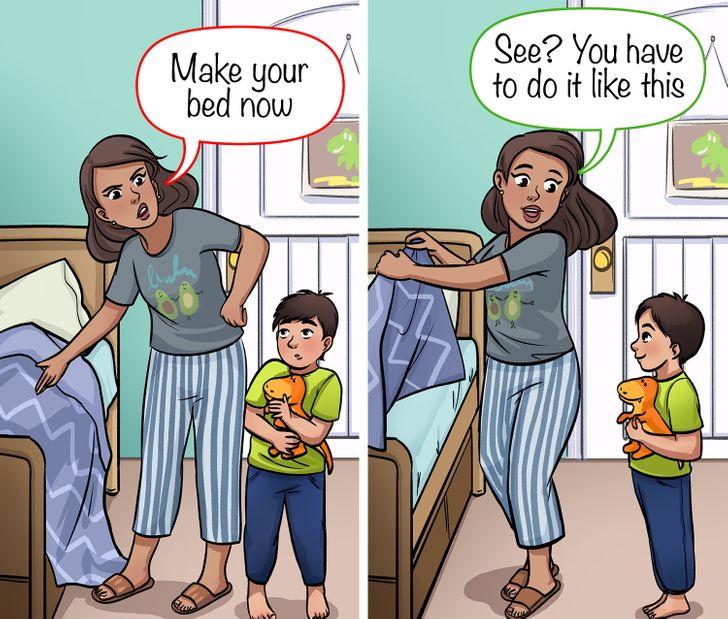
As your kids’ first teacher, it’s up to you to show them how to do things. If you want them to do a task, first, explain what needs to be done. Then, demonstrate how it’s done. Finally, guide them through each step. Kids usually learn better when they see adults doing things. If you lead by doing, your kids will feel more sure of themselves and won’t feel lost trying to figure things out on their own.

Help your child learn to make decisions—it’s a big skill for growing up happy and healthy. Start with small choices when they’re young, like picking between candy, soda, or toys at the store. Letting them choose their own clothes is another way to build their confidence and make things easier for you. Don’t decide everything for them; talk and advise instead. Remember, they know what they like, and you just need to give them chances to choose what they want.
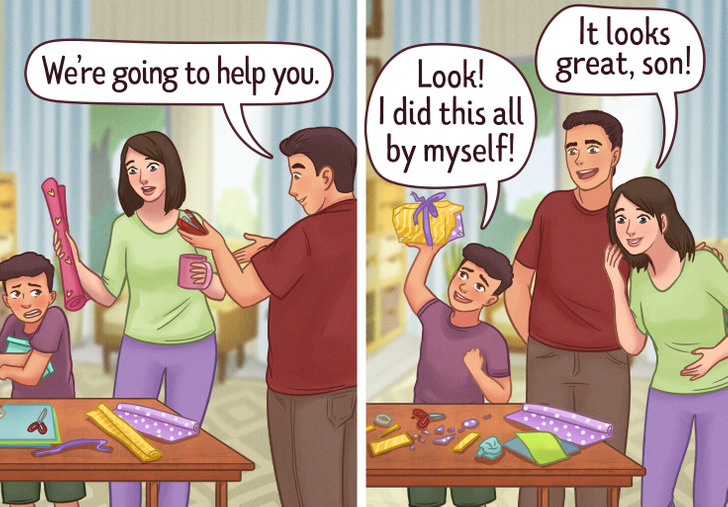
Sometimes, when you’re in a rush, it might seem easier to do things yourself instead of waiting for your kids. However, this can be not so great for their independence in the future. Kids learn and grow by doing things and making mistakes. It’s important to let them have a go at things on their own to help them learn. This way, they can discover confidence and belief in themselves.
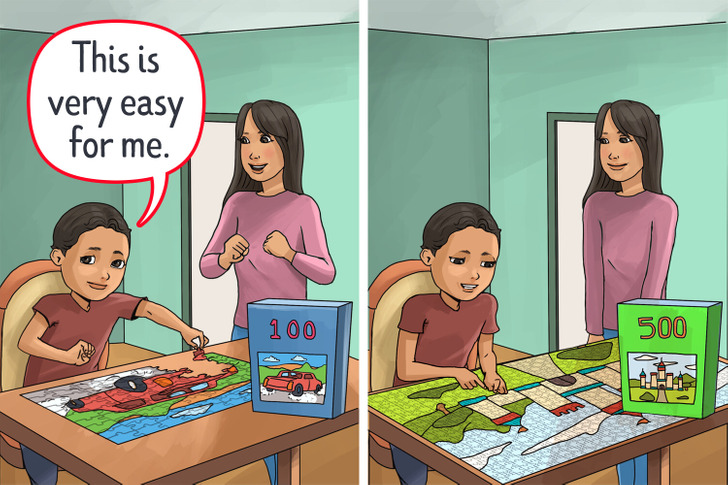
It’s crucial for kids to feel confident by taking on challenges. So, a good idea is to give them new tasks that match their age, skills, and growth. For instance, you can suggest that 3-year-olds try dressing themselves, drawing a picture, or singing a song. Also, you can give the child a puzzle, and try to increase the number of pieces with each subsequent one.
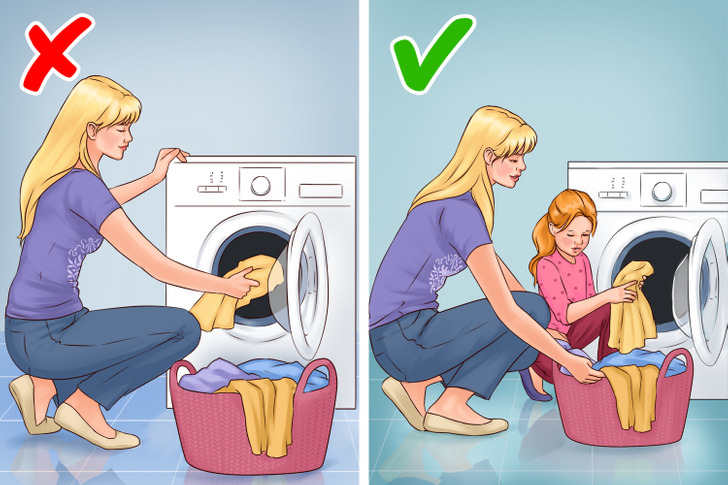
Kids can learn a bunch from their experiences with chores at home. Pitching in helps them figure out how to take care of themselves, the house, and the family. It also lets them feel responsible and capable. Not all chores are good for all ages, so here are some ideas based on your children’s stages:
2-3 years
4-5 years
6-11 years
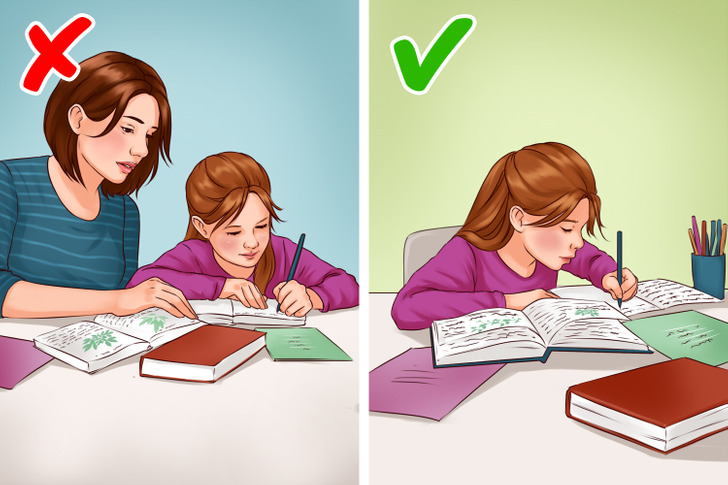
Children learn most from observing their parents. If your child sees you delaying tasks or picking the TV over chores, they’ll adopt your habits. Prioritize demonstrating self-discipline as a positive example for them to follow. They need to learn how to take care of important tasks, not just focus on playing and having fun. Incorporating habits like brushing their teeth before bed, putting away toys, and completing homework into their daily routine is essential.
While it’s important to let them handle their homework independently, offering gentle reminders about teeth cleaning can be helpful without controlling their every move.

It’s typical for children to have fears, and as adults, we should acknowledge and address those fears. Listening to children and providing reassurance is essential. Encouraging them to openly share their feelings and emphasizing that fear is a natural part of facing challenges is important. Sharing personal examples of overcoming challenges can be a helpful way to alleviate their fears.
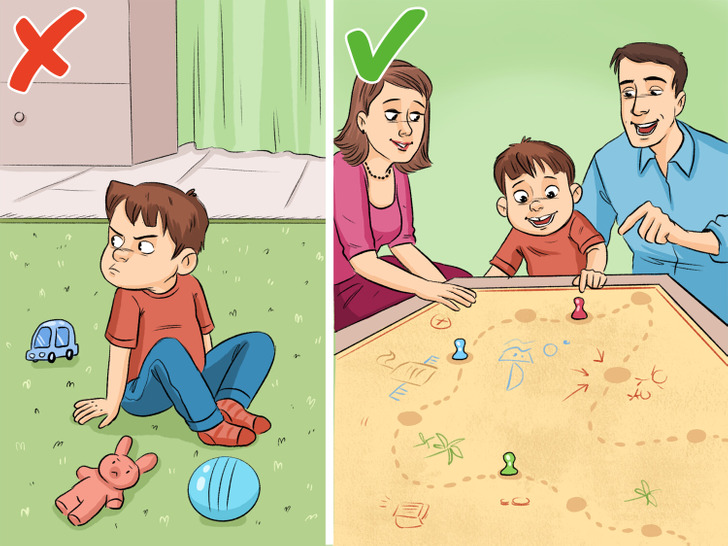
Let your child know you’re always there for them to make them happy and feel loved. Simply, be their friend. Spend time together doing fun stuff like playing games, drawing, or cooking. It’s not just about being around; actively join in activities to strengthen your bond. Understanding that a lack of motivation can affect learning helps you support them better.

Sometimes, we get so busy with our daily stuff that we forget to notice the little wins of our kids. It’s crucial to remember that our youngest family members need our attention and praise for every little accomplishment. It’s not about big things like winning a game or a competition, but smaller victories like completing homework or eating their food. If we cheer them on for these small steps, it boosts their confidence.
With every help you provide for your kids, it’s important not to live their life for them. Instead, the parent’s task is to help them grow and build their personality with a lot of experience. Don’t do things that will hit them like a boomerang later.






